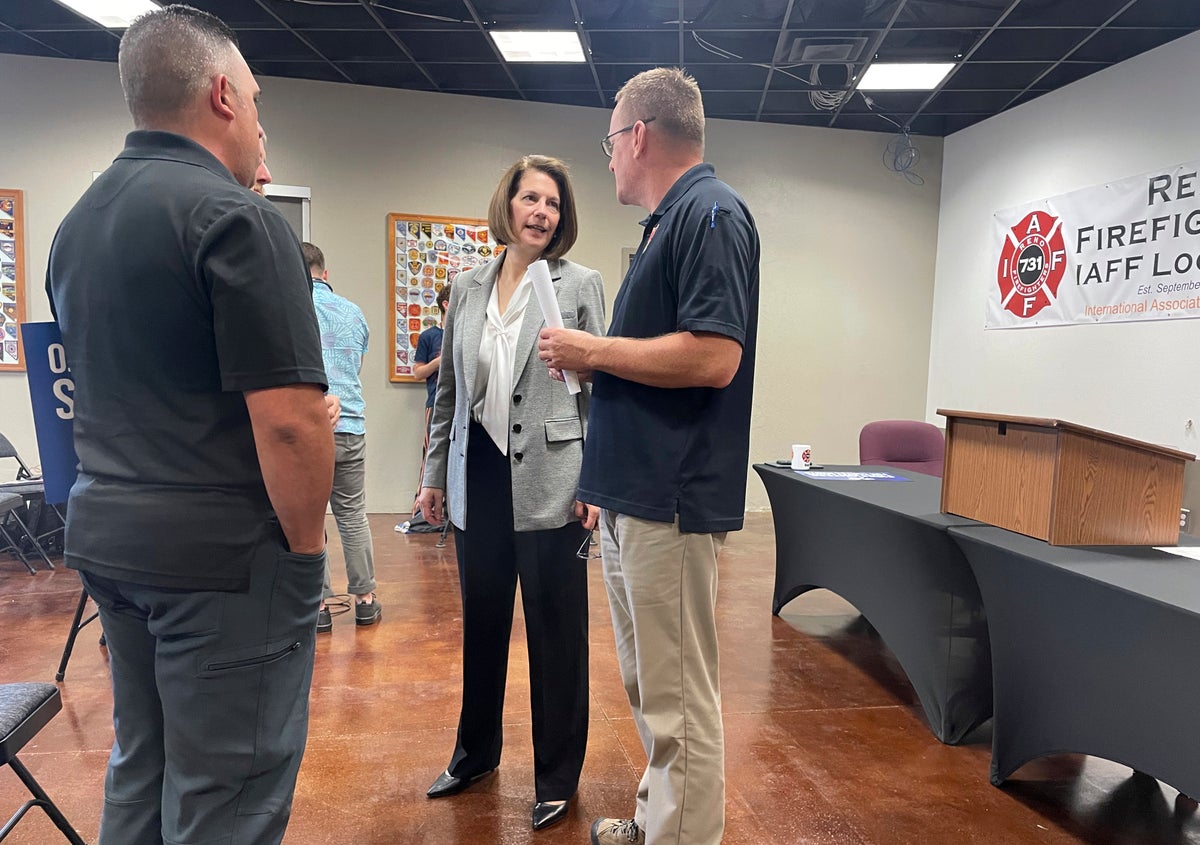
Sandwiched between supporters holding “BANS OFF OUR BODIES” signs and TV cameras on Thursday, U.S. Sen. Catherine Cortez Masto portrayed her reelection campaign as a defining moment in a decades-long fight for reproductive freedom, even in pro-choice Nevada.
“I cannot stress this enough. This seat is the pathway to protecting our rights in this country,” she said at a home in the city of Sparks, a Reno suburb. “To preventing a federal abortion ban.”
Cortez Masto is one of several Democrats up for reelection who are pushing reproductive rights to the center of their campaign in the wake of the U.S. Supreme Court's ruling overturning Roe v. Wade. Her race against Republican Adam Laxalt is expected to be among the most competitive in the country, one of a handful that could determine whether Democrats maintain control of the Senate.
As she courts moderate voters, Cortez Masto’s campaign has touted polling that has shown nearly 70% of Nevadans lean pro-choice. She has repeatedly referenced a 1990 statewide vote that codified abortion protections in Nevada’s state constitution, with nearly two-thirds voting in support.
Cortez Masto's messaging represents a shift in strategy for some candidates after decades in which Roe v. Wade was believed to be settled law, said University of Nevada-Las Vegas Professor Rebecca Gill.
"Now that there is this real, significant, palpable threat to access to reproductive health care and abortion, it is certainly possible that some number of that pro-choice majority, may well be motivated to vote on choice issues above other competing concerns.”
Laxalt, Nevada's former attorney general, has mostly stayed on message — and away from the subject of abortion.
He called the court decision a “historic victory for the sanctity of life,” and leaked audio revealed him calling Roe v. Wade opinion “a joke,” but his campaign has mainly continued to focus on crime, immigration and rising gas prices that are part of what he calls the “Biden-Masto agenda.” His campaign did not respond to questions for this story.
Though much attention is paid to how state governments respond to the new abortion guidelines, any national abortion ban would supersede state laws. Communicating that in pro-choice states like Nevada could make a difference in the general election, said Gill.
Cortez Masto’s target on Thursday was moderate women in Washoe County, a swing county that involves the city of Reno, suburbs including Sparks and a large rural swath that stretches north to the Oregon border.
“No one is going to want to come and work here if we have laws in place, like in some states, where I, as a medical professional, can be charged, can be sued, for providing information for basic human healthcare,” said KC Hicks, an emergency room nurse who’s a registered Republican but said she identifies more as an independent. Laws criminalizing healthcare providers who perform abortions will only lead to more staffing shortages, she said, which affects everyone seeking medical care.
Still, the SCOTUS ruling also could require damage control from Democrats, who hold the majority in both the U.S. House of Representatives and Senate.
“Democrats who are in Congress now have the problem of ‘They haven’t done anything,’” said Mary Ziegler, professor at Florida State University’s College of Law and the author of several books on abortion’s legal history. “So I think there’s been some of them who are in that case, highlighting what would change if Republicans control the House and Senate and White House.”
It’s a point Cortez Masto circled back to again and again on Thursday: what could happen if she’s replaced in November.
“There is no doubt in my mind that the Republicans in the Senate right now are writing a draft legislation to further restrict abortion in this country,” she said. “To actually try to pass a federal abortion ban. This election, it matters. Nevada is the seat that’s going to stop that.”
When asked what she has done to enshrine federal abortion rights in Congress, Cortez Masto instead pointed to her longstanding support of the 1990 Nevada abortion law. She later cited data federal privacy legislation she introduced that she said would help protect women who receive reproductive health care, and her support for the Affordable Care Act when Republicans tried to repeal it.







